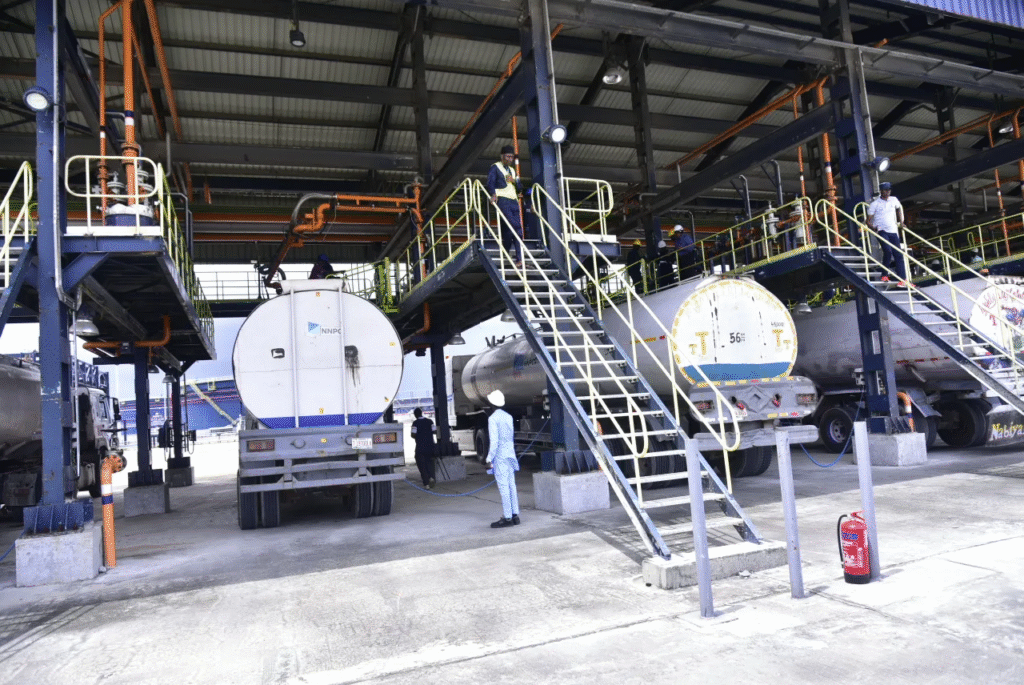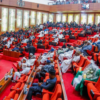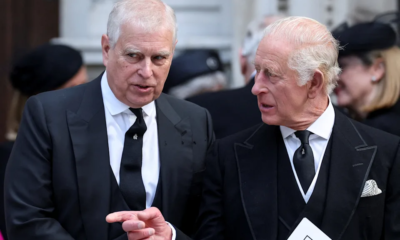Latest News
Dangote Refinery Petrol Unit Offline Amid Catalyst Leaks, Repairs To Last Two Weeks

The petrol producing unit at Nigeria’s 650,000 barrel-per-day Dangote refinery has been taken offline due to catalyst leaks and other issues, with repairs expected to take at least two weeks, two sources familiar with the matter told Reuters on Wednesday.
The refinery’s 204,000 bpd Residue Fluidised Catalytic Cracking Unit (RFCCU) has been offline since around August 29, industry monitor IIR Energy said in a note.
The sources requested anonymity to discuss confidential information. Dangote did not immediately respond to a Reuters request for comment.
The massive Dangote refinery has sharply ramped up operations since it opened last year, reshaping global oil and fuel trade flows. The refinery’s first exports of petrol to the United States are expected to reach New York later this month, data from ship tracking service Kpler showed.
However, the refinery has also struggled with frequent outages, the report said. The plant’s RFCCU was expected to run at lower rates through October after a string of issues earlier this year, Reuters reported in May.
The anticipated length of the current outage is weighing on petrol availability in the Atlantic Basin, lifting US refiners’ profit margins on the fuel, market sources said, despite the unofficial end of the US summer driving season earlier this week.
The US petrol futures crack spread – the difference in the price of the fuel versus the price of crude oil—gained nearly 3 percent on Wednesday to the highest level since August 19. It had jumped more than 8 percent on Tuesday.
Besides, the Organisation of Petroleum Exporting Countries (OPEC) bolstered crude production last month as the group and its allies continued to revive halted supplies, according to a Bloomberg survey.
OPEC raised output by 400,000 barrels a day — roughly the amount planned — to 28.55 million barrels a day, the survey showed. Group leader Saudi Arabia accounted for just over half of the increase.
The cartel and its partners have fast-tracked the return of shuttered production in recent months in a bid to reclaim global market share. The extra barrels have so far only put modest downward pressure on crude prices, but threaten to unleash a major surplus in the coming months, according to the International Energy Agency (IEA).
International benchmark Brent futures are down 9 per cent this year, trading near $68 a barrel in London. While the downturn offers some relief for consumers and a win for President Donald Trump, it threatens financial pain for producers including Saudi Arabia, which is grappling with a budget deficit, and America’s shale industry.
Riyadh boosted output by 230,000 barrels a day in August to 9.6 million barrels a day, the survey showed. While that was the biggest increase among OPEC’s 12 members, it still fell short of the 9.756 million barrels a day the kingdom was permitted to pump by the alliance’s agreement.
Saudi crude exports edged lower, to 5.83 million barrels a day, tanker tracking data compiled by Bloomberg showed. The country’s domestic consumption typically increases during the summer months to meet heightened need for air conditioning.
The kingdom’s production has fluctuated in recent months, surging in June as it shifted barrels beyond the Persian Gulf during the Israel-Iran conflict, then retreating sharply the following month. Bloomberg’s estimates for July were revised lower.
The next-biggest production increase in August came from Iraq, which boosted by 120,000 barrels a day to 4.28 million barrels a day, according to the survey. That’s about 109,000 above the country’s OPEC+ quota for the month, suggesting Baghdad failed to make the additional curbs it had pledged as compensation for previous overproduction. The nation has long chafed against OPEC+ limits while rebuilding its shattered economy.
For the five OPEC members participating in so-called voluntary cuts, output averaged 20.87 million barrels a day last month, or about 205,000 more than their collective target, excluding any compensation commitments.
Alongside three countries from the broader OPEC+ coalition, the eight nations agreed last month on an increase of 547,000 barrels a day for September that will complete the return of 2.2 million barrels shuttered since 2023.
They will hold a video conference on Sunday to assess world markets, and may review another layer of idle supply — amounting to 1.66 million barrels a day — which is currently designated to remain offline until the end of 2026.
Officials have signaled their next move could be a pause, a further output increase, or even the reversal of their recent additions, depending on market conditions. Brent contracts dropped 1.9 per cent on Wednesday after Reuters reported that the group will consider another hike.
Meanwhile, eight OPEC+ members will consider further raising oil production at a meeting on Sunday, two sources familiar with the discussions told Reuters, as the group seeks to regain market share.
OPEC+ has reversed its strategy of output cuts from April and has already raised quotas by about 2.5 million barrels per day, about 2.4 per cent of world demand, to boost market share and under pressure from the US President Donald Trump to lower oil prices.
But those increases have failed to bring down oil prices, which traded near $68 a barrel supported by Western sanctions on Russia and Iran, encouraging further production gains in rivals such as the United States.
Another output boost would mean OPEC+, which pumps about half of the world’s oil, would be starting to unwind a second layer of cuts of about 1.65 million barrels per day, or 1.6 per cent of world demand, more than a year ahead of schedule.












